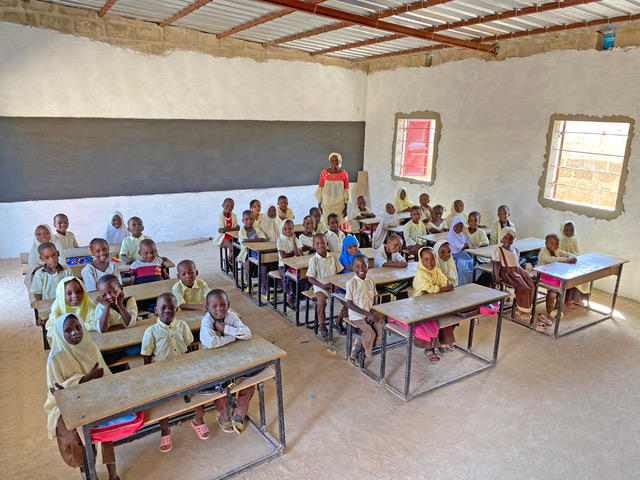
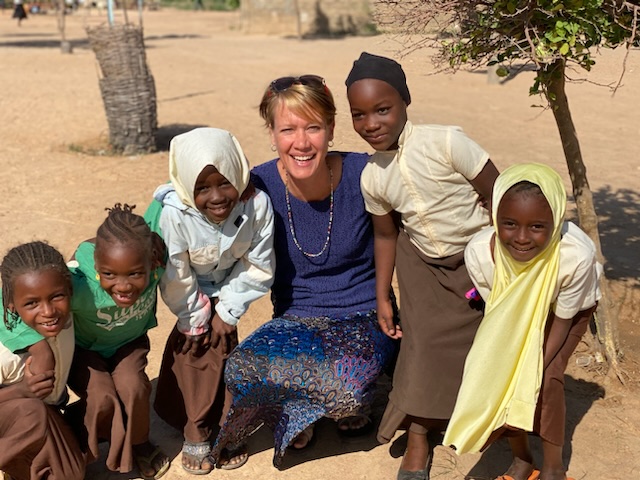
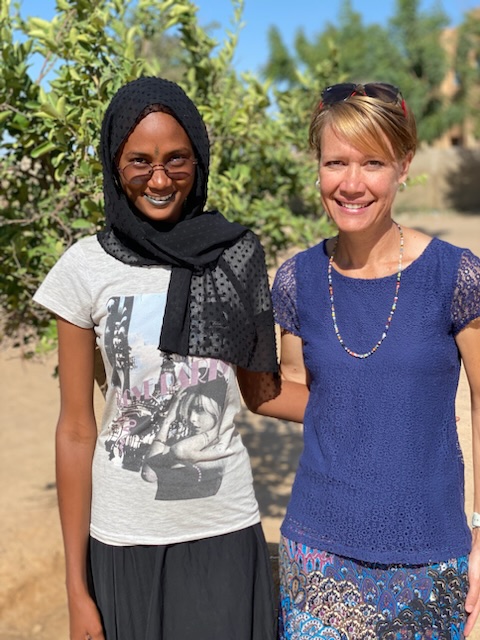
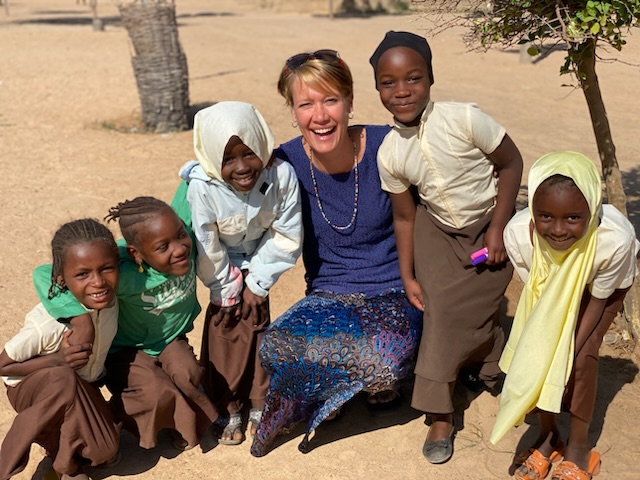
“The power of education is so transformative,” said Kara VanderKamp ’95. She would know. She’s seen education change the lives of 4,500 Nigerien children and counting.
The CEO and founder of Remember Niger Coalition (Remember Niger) was transformed by a Hope College education. She wants to pay it forward the Hope Forward way by ensuring as many children as possible receive a high-quality education in Niger, West Africa, the least-educated country in the world.
According to VanderKamp, only half the children in Niger attend primary school and only 20 percent of them attend secondary school because many live in rural areas with no access to education. If they are fortunate enough to attend school, the quality of their education suffers from rampant overcrowding, often with 100 students in a single classroom.
VanderKamp has been working with local Nigerien community leaders for the past 16 years to change that. Through Remember Niger, a nonprofit organization dedicated to unifying people and mobilizing resources to expand quality educational opportunities in one of the least-developed nations on earth, 80 classrooms have been built and 4,500 students are receiving an education.
This is life-changing because many students come from the most vulnerable groups, including the disabled and orphans. Education especially changes the lives of girls living in extreme poverty. They are often married in their early teens, sometimes to husbands with more than one wife, VanderKamp explained. Getting a primary education means they are more likely to attend high school and graduate with skills providing income-earning potential and a more independent future.
Working with an in-country counterpart, VanderKamp supports local churches and organizations that want to provide education in their communities but don’t have the resources. “It takes a lot of effort and sacrifice on their part to start a school,” said VanderKamp, noting that the Nigerien government doesn’t have the funding to support them. “We give them the right level of support and come alongside and encourage them so they will take the leap.”
Remember Niger raises funding mostly through churches across the United States and is the bridge to churches and organizations in Niger who have a vision to provide education in their communities. Remember Niger funds construction of classrooms, latrines, security walls and other school structures, with the goal of local leaders owning and operating the schools.
In addition, the nonprofit organization coordinates student sponsorships, where generous donors agree to cover individual students’ education expenses. Remember Niger also focuses on wellness by providing daily meals, planting school gardens, conducting hygiene education and meeting students’ acute medical needs. With only 62 percent of Nigerien teachers having one year of post-high school training, Remember Niger also sponsors a Teach-the-Teacher program in coordination with the local Ministry of Education, VanderKamp said.
“The foundation of what we do is relational,” she added. “Institutions of education don’t change people. It’s the relationships you form through those institutions. Through loving care, empathy and kindness, lives are changed.”
VanderKamp’s involvement with education in Niger started with her time at Hope. “It was definitely about relationships at Hope,” said VanderKamp, who formed deep friendships with her Sigma sorority sisters and the women on Hope’s soccer team, where she was a captain.
“Hope gave me the space to explore, experiment and take many different classes,” said VanderKamp, a political science and elementary education major. “I loved the way professors really helped you think critically about the world around you and not to be judgmental.”
Doing a Washington Semester through Hope where she had an internship in the Department of Education stoked her adventurous spirit. It gave her the confidence to go to England to play soccer after graduation, work for Habitat for Humanity and teach children for a missionary family serving among a semi-nomadic tribe in Africa. That’s when Africa “stuck in my heart,” she said.
After teaching in Chicago for several years and earning a master’s degree in international educational development, she got a job with the Presbyterian Church (USA) as an educational consultant. Working there eventually led to her starting Remember Niger, something she never dreamed of doing.
One of the reasons she could pursue a life of impact in Niger was that she graduated with no student debt. Her parents put VanderKamp and her three siblings through Hope College. To do so, her mother, Joyce, returned to work full time, dedicating her entire salary to their Hope education so they would not have to take out loans, VanderKamp said.
“A Hope education was an enormous gift,” she added – a gift she now can pass along to children in Niger. And she’s confident that the students in Niger will pass their gift of education to others the Hope Forward way.
“When you ask students what they want to do with their education, nine times out of 10 they will say, ‘I want to help my community and be useful to my country,’” VanderKamp said. “They feel like they’ve won the lottery when they can get an education.”
Learn more at www.rememberniger.org.
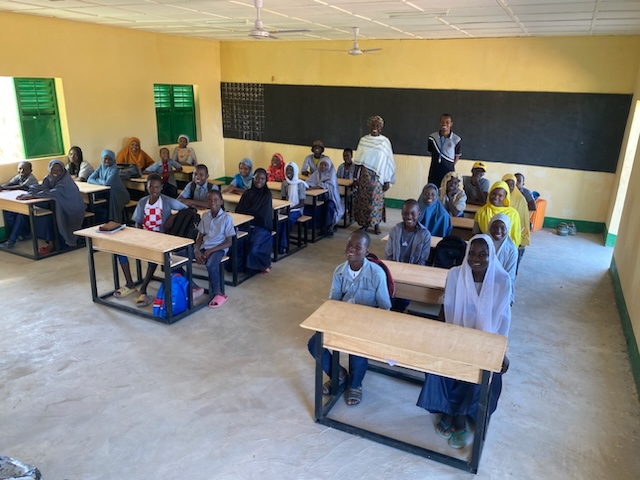
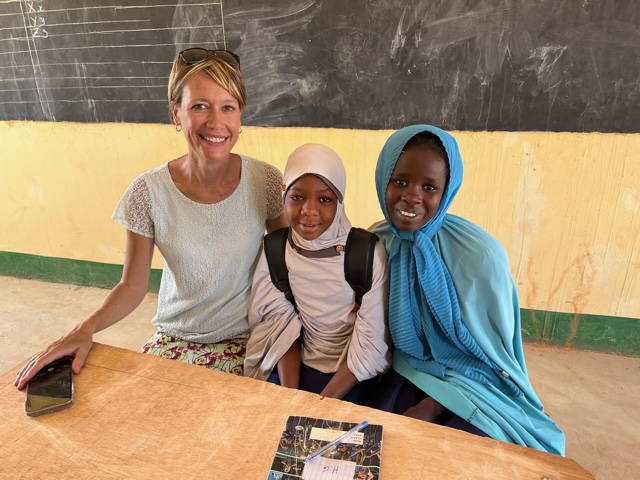
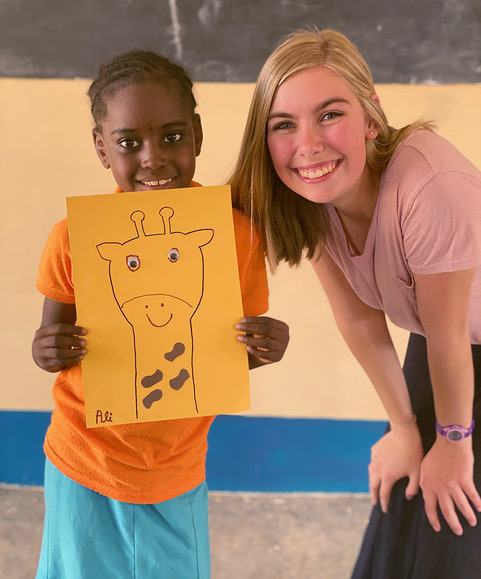
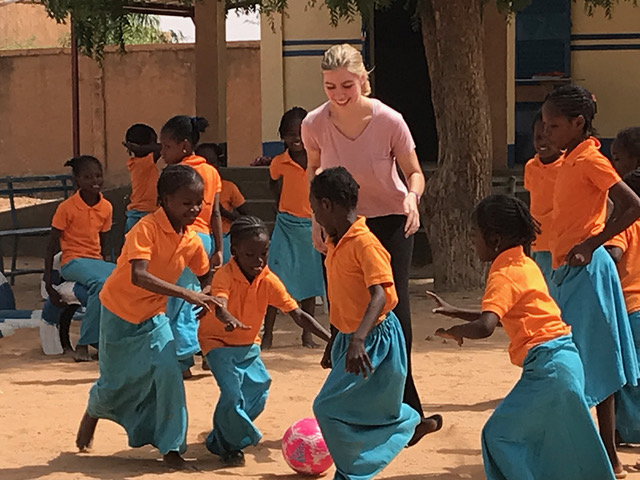


Nice article.keep up the good work
nice article.thanks
Any one desires and can support Kara and her team might check out the website Rememberniger.org where you can also make a tax free donation.